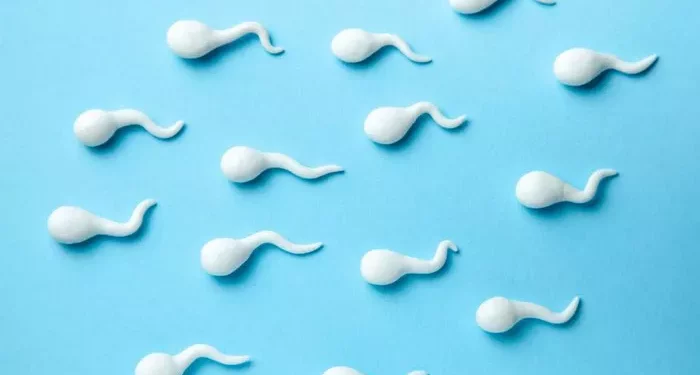Infertility is a challenging condition that affects numerous couples worldwide, with male factor infertility accounting for a significant portion of cases. Severe oligospermia is a specific form of male infertility characterized by an extremely low sperm count, which can significantly impact a couple’s ability to conceive naturally. In this comprehensive guide, we delve into the various causes of severe oligospermia, diagnostic processes, available treatment options, prognosis considerations, prevention strategies, and the latest developments in male infertility research.
Definition and Overview of Severe Oligospermia
Severe oligospermia, also known as severe oligozoospermia, is a condition characterized by an extremely low concentration of spermatozoa in the ejaculate. Typically, this is defined as having less than 5 million sperm per milliliter of semen. It’s important to note that sperm count alone does not determine fertility, as sperm motility and morphology also play crucial roles in reproductive success. Severe oligospermia significantly reduces the chances of natural conception and may necessitate assisted reproductive techniques for achieving pregnancy.
Causes of Severe Oligospermia
Genetic Factors
Genetic predispositions can contribute to severe oligospermia. Certain inherited conditions, such as Klinefelter syndrome, Y chromosome microdeletions, and cystic fibrosis gene mutations, can disrupt normal sperm production and function. These genetic abnormalities may be identified through genetic testing and counseling for couples experiencing infertility.
Medical Conditions
Various medical conditions can disrupt the intricate process of sperm production and maturation, leading to severe oligospermia. Hormonal imbalances, including deficiencies in testosterone or elevated levels of prolactin, can impair sperm production. Infections, particularly sexually transmitted infections like chlamydia and gonorrhea, can cause inflammation and scarring of the reproductive organs, hindering sperm production and transport.
Additionally, varicocele, a common condition characterized by enlarged veins within the scrotum, can elevate testicular temperature, impairing sperm production and quality. Certain chronic illnesses, such as diabetes, autoimmune disorders, and kidney disease, may also impact fertility by affecting hormonal balance or causing testicular damage.
Lifestyle Factors
Lifestyle choices can significantly influence male fertility and contribute to severe oligospermia. Excessive alcohol consumption and tobacco use have been linked to decreased sperm count and motility. Illicit drug use, including marijuana and cocaine, can disrupt hormonal balance and impair sperm production. Obesity and poor dietary habits, such as a diet high in processed foods and low in antioxidants, may negatively impact sperm quality.
Exposure to environmental toxins, such as pesticides, heavy metals, and industrial chemicals, can also harm sperm production and function. Occupational hazards, such as prolonged exposure to heat or radiation, can affect sperm production in men working in certain industries.
Medications and Treatments
Certain medications and medical treatments can interfere with sperm production, contributing to severe oligospermia. Chemotherapy and radiation therapy, commonly used in cancer treatment, can temporarily or permanently impair sperm production depending on the dosage and duration of treatment. Additionally, medications such as anabolic steroids, antidepressants, and antihypertensives may affect sperm production or function.
Diagnostic Process
The diagnostic process for identifying severe oligospermia typically begins with a comprehensive evaluation by a reproductive endocrinologist or urologist. This evaluation may include:
1. Physical Examination: A thorough physical examination to assess the reproductive organs and identify any abnormalities, such as varicocele or testicular atrophy.
2. Semen Analysis: A semen analysis is a cornerstone of male fertility testing, providing essential information about sperm count, motility, and morphology. Semen samples are collected through masturbation and analyzed in a laboratory to assess sperm quality.
3. Hormone Testing: Blood tests may be conducted to evaluate hormone levels, including testosterone, follicle-stimulating hormone (FSH), luteinizing hormone (LH), and prolactin. Abnormal hormone levels can indicate underlying hormonal imbalances affecting sperm production.
4. Imaging Studies: In some cases, imaging studies such as scrotal ultrasound may be performed to visualize the reproductive organs and identify structural abnormalities, such as varicocele or obstructive lesions.
Treatment Options
Lifestyle Modifications
Making healthy lifestyle changes can positively impact sperm production and overall fertility. Encouraging habits such as maintaining a balanced diet rich in fruits, vegetables, and whole grains, regular exercise, avoiding tobacco, alcohol, and illicit drugs, and managing stress can support optimal reproductive health.
Medications
In certain cases, medications may be prescribed to address underlying hormonal imbalances or stimulate sperm production. For example, hormone replacement therapy may be recommended for men with testosterone deficiency, while medications such as clomiphene citrate or gonadotropins may be used to stimulate sperm production in cases of hypogonadotropic hypogonadism.
Assisted Reproductive Techniques (ART)
Assisted reproductive techniques offer hope for couples struggling with severe oligospermia to achieve pregnancy. In vitro fertilization (IVF) involves fertilizing eggs with sperm in a laboratory setting and transferring resulting embryos into the woman’s uterus. Intracytoplasmic sperm injection (ICSI) is a specialized IVF technique where a single sperm is injected directly into an egg to facilitate fertilization. Sperm retrieval techniques, such as testicular sperm extraction (TESE) or percutaneous epididymal sperm aspiration (PESA), may be utilized to retrieve sperm from the testes or epididymis for use in ART procedures.
Surgery
In cases where varicocele is identified as a contributing factor to severe oligospermia, surgical repair of the varicocele may be recommended. Varicocele repair aims to improve testicular blood flow and temperature regulation, potentially enhancing sperm production and quality.
Prognosis and Considerations
The prognosis for severe oligospermia depends on various factors, including the underlying cause, age of the individual, and overall health status. While some cases of severe oligospermia may be challenging to treat, advancements in assisted reproductive technologies offer hope for many couples to achieve pregnancy. It’s essential for individuals and couples facing infertility to seek support from healthcare providers and consider the emotional impact of fertility struggles on their mental well-being and relationship dynamics. Counseling and support groups can provide valuable resources for coping with infertility-related stress and making informed decisions about treatment options.
Prevention Strategies
While some causes of severe oligospermia are beyond individual control, adopting healthy lifestyle habits and minimizing exposure to known risk factors can help reduce the risk of male infertility. Key prevention strategies include:
1. Maintaining a Healthy Lifestyle: Eating a balanced diet, exercising regularly, maintaining a healthy weight, and managing stress can support optimal reproductive health.
2. Avoiding Harmful Substances: Limiting alcohol consumption, avoiding tobacco and illicit drug use, and minimizing exposure to environmental toxins can help preserve fertility.
3. Seeking Early Medical Intervention: Addressing underlying medical conditions promptly and seeking medical advice for fertility concerns can improve the chances of successful treatment and conception.
Future Research and Developments
Ongoing research in the field of male infertility holds promise for advancements in diagnosis and treatment options for severe oligospermia. Emerging technologies such as sperm sorting and selection techniques, genetic testing for male infertility, and novel pharmacological interventions aim to improve outcomes for individuals and couples struggling with infertility. By supporting continued research efforts and fostering collaboration among healthcare professionals, researchers, and patients, we can strive towards better understanding and management of severe oligospermia in the future.
Conclusion
Severe oligospermia presents a significant challenge for couples aspiring to conceive, but with advancements in medical science and assisted reproductive technologies, there is hope for achieving successful outcomes. By understanding the various causes, diagnostic processes, treatment options, and preventive strategies for severe oligospermia, individuals and couples can make informed decisions and seek appropriate support on their journey towards parenthood. Through continued research and innovation, we aim to improve outcomes and quality of life for individuals affected by male infertility.
Related Topics:
An Overview of The Link Between Varicocele and Azoospermia
The Comprehensive Guide to Walgreens Men’s Fertility Test
A Complete Overview of Female Infertility: The Factors and Solutions



























